“We must be willing to let go of the life we have planned, so as to have the life that is waiting for us.”
E. M. Forster
I have to say it – I love Christmas.
I didn’t always. Growing up I had mixed feelings about Christmas to say the least, usually accompanied by a general feeling of bewilderment about what it was all about. Growing up in Jerusalem, where Christmas is practically nonexistent; where there are no decorations and where everyone goes to school or work on Christmas Day, it would usually feel flat and anticlimactic. Experiencing Christmas other years visiting our extended family in the United States was the other polar extreme – to make a colossal  understatement! With ten meter high inflatable Santas on every corner, every house competing to see who could have the most glitzy Christmas lights and decorations covering every inch of outside space, and advertisers constantly trying to overwhelm the public with how much they need the latest and best things for Christmas, it would leave me…confused. How did the holiday that’s meant to be celebrating the immense joy of Light entering the world and shattering our darkness become so…plastic?
understatement! With ten meter high inflatable Santas on every corner, every house competing to see who could have the most glitzy Christmas lights and decorations covering every inch of outside space, and advertisers constantly trying to overwhelm the public with how much they need the latest and best things for Christmas, it would leave me…confused. How did the holiday that’s meant to be celebrating the immense joy of Light entering the world and shattering our darkness become so…plastic?
Don’t get me wrong, I loved being with family and all the traditions, but something about either extreme left me unsure about why Christmas is meant to be the most wonderful time of the year (as you hear in every song in the weeks [months now?] leading up to Christmas).
That all changed 6 years ago. When I moved to England and experienced Christmas here, with just enough tasteful decorations and lights to get you into a holiday mood without being overwhelming (although that is of  course down to personal taste), mulled wine, Christmas markets and buskers singing carols and festive atmosphere filling the streets, I turned into a kid again. I started reliving my childhood and now have 3 different Christmas playlists on Spotify playing constantly for the whole of December, deck out our house with lights and decorations and wear Christmas jumpers (sweaters for those from the other side of the pond) pretty much every other day for the month. I guess you could say I’m making up for lost time of humbug years (it’s also the only way I’ve found to get through the long, dark and very wet English winter!).
course down to personal taste), mulled wine, Christmas markets and buskers singing carols and festive atmosphere filling the streets, I turned into a kid again. I started reliving my childhood and now have 3 different Christmas playlists on Spotify playing constantly for the whole of December, deck out our house with lights and decorations and wear Christmas jumpers (sweaters for those from the other side of the pond) pretty much every other day for the month. I guess you could say I’m making up for lost time of humbug years (it’s also the only way I’ve found to get through the long, dark and very wet English winter!).
Yet along with all the lights, Christmas music and festivities, there is a part of the days leading up to Christmas that still feels bittersweet. 2 years ago, the day before we were going away to spend Christmas in Devon with Will’s family, we got the news at our 20-week scan that shattered our expectations, turned our worlds upside down and changed our lives forever – that all was not well with our baby. I’ve recently been reliving those days as I’ve been writing our story as an article for a local magazine produced by a UK charity for new parents, called National Childbirth Trust (NCT). It was published a few weeks ago and I thought I’d share it on here. It’s written mainly for expecting or new parents who have had to deal with the unplanned for in any part of the pregnancy, birth or post-baby experience. But my hope is that in sharing our story, it could in a small way help anyone who is going through a storm that the unexpected in life can bring.
Hope you all have the happiest of Christmases and a joy-filled New Year, with our love. X
—————————–//////—————————-
Coping with the Unexpected
How to handle when life doesn’t go to plan
Most of us have a plan for our lives, whether it be a conscious or subconscious one. When it comes to pregnancies, births and babies, we are constantly told we should plan it all out. Plan your pregnancy, write a birth plan, plan out how you want to parent your children. These are all good things in themselves. But what happens when, as happens more often than not, things don’t go to plan?
Since I was young I remember dreaming about my future and planning out my life. I wanted – among other things – four children and relaxed, natural births with no problems (my sisters have 12 children between them so this was on my radar from an early age). I thought of course there would be no issues with this plan; my sisters had low-risk pregnancies and perfect, natural births for all of their children who were born with no health issues. I thought that since I have the same genes, of course I would be the same. How wrong I was.
The beginning of our pregnancy seemed to be going perfectly to plan – my husband and I decided to start trying for a baby three years into our  marriage and got pregnant within the first week of trying. The first few appointments and the 12 week scan went perfectly well; I was classed as a low-risk pregnancy and was told I could have my birth at a natural birthing centre as I wanted. We went on blissfully until our 20 week scan, when – suddenly – our perfect world was shattered around us. Sitting in the antenatal scanning room, I still remember the feeling of ice-cold numbness and the sensation of falling when they told us there was a problem with our baby. They had detected extra fluid on his brain and what looked like a problem with his heart. They told us to come back in two weeks for another scan by a heart specialist and to meet with a consultant about what this would mean for our baby.
marriage and got pregnant within the first week of trying. The first few appointments and the 12 week scan went perfectly well; I was classed as a low-risk pregnancy and was told I could have my birth at a natural birthing centre as I wanted. We went on blissfully until our 20 week scan, when – suddenly – our perfect world was shattered around us. Sitting in the antenatal scanning room, I still remember the feeling of ice-cold numbness and the sensation of falling when they told us there was a problem with our baby. They had detected extra fluid on his brain and what looked like a problem with his heart. They told us to come back in two weeks for another scan by a heart specialist and to meet with a consultant about what this would mean for our baby.
Those two weeks over Christmas 2013 were some of the longest in my life. My perfect world and plans had just shattered into a million pieces. Nothing seemed certain anymore; I was told our baby, who I had already formed such a strong bond with, who I already loved fiercely and wanted to protect, could have severe brain damage and heart issues that would affect his entire life – and ours.
Two weeks later we came back and they had a cardiologist do a heart scan. Thankfully, it showed that there were now no problems with his heart (you can read more about Caleb’s story here) – but the fluid was still an issue. We had decided together that we loved this baby and would want to keep it no matter the cost. We also decided that we would rather not do the Amniocentesis screening for Down Syndrome and other conditions, as this can cause a slight chance of miscarriage. Since we knew we wanted this baby, we felt there wasn’t much point and thought we’ll just have to take whatever comes.
(This was a personal decision we made based on our own feelings, beliefs and values. Looking back I often wondered if we should have done the screenings – if only to prepare ourselves for the future. Now, though, I am so glad we personally chose to wait.)
The consultant confirmed our fears, saying that his projection was that the fluid would continue to increase, taking the room needed for the brain to develop and would most likely cause severe brain damage. He said that instead of the natural water birth at the midwife-led birthing unit in Frome I was hoping for, we would need to deliver at the Royal United Hospital in Bath and be under constant monitoring. He said that instead of the skin-to-skin bonding time I wanted after the birth, our baby would need to be taken away from us straight after the birth for surgery. He then said that instead of going home soon after the birth to start our lives together as we wanted , we would most likely need to stay in the hospital for a good few weeks with our baby in the intensive care unit. Everything he said – everything – was the exact opposite of what I had always imagined and planned for my first birth and baby.
, we would most likely need to stay in the hospital for a good few weeks with our baby in the intensive care unit. Everything he said – everything – was the exact opposite of what I had always imagined and planned for my first birth and baby.
I know I’m not alone in this. So often, our pregnancy, birth and baby plans that we work so hard on making a reality end up crumbling around us – often, because of circumstances and through no fault of our own. Whether it be where you want to have your baby, how you want to have it, or how you want to parent and feed your child, sometimes – despite our best efforts – these things just aren’t possible. But what do we do when this happens? How do we cope when life doesn’t go the way we planned?
It is completely natural to feel disappointed, even devastated when things don’t go to plan. It’s easy to dwell on the disappointment; to let the things that go wrong consume us, affecting our lives and everyone and everything in them. A friend of mine calls it the ‘dark cloud period’ – when everything is filtered through a hazy lens of grief and disbelief. It can be easy to blame yourself, to feel like a failure or feel that the darkness will never lift. The first thing to know is that these feelings are natural and valid. “Feelings are feelings, and they are all OK,” says expert Crystal Clancy, a licensed marriage and family therapist who specialises in working with pregnant women and new parents struggling with postpartum difficulties. “Many people, women especially, feel guilty or shameful about their feelings. [Mothers need to] express their feelings and see that their feelings do not make them a bad mother, person, wife, woman…they need to honour those emotions.”
After asking local parents about their experiences of things not going to plan with the pregnancy, birth or post-baby, one of the main things that stood out from the responses was the importance of talking these feelings through. ‘I wish I had talked about how I was feeling more with my husband and friends, rather than bottling it up,’ said mum & NCT volunteer Jessica Slater. Mum Alice Starr, having been through an unplanned emergency caesarean, agreed; saying it’s important to talk through emotions and stress that can come from experiences not going to plan. She also said it’s important for people to realise that things can go wrong for anyone and to prepare yourself beforehand, which several other mothers agreed with. Mum Michelle Jones, who had to be induced twice, said: ‘I think women need to be prepared far, far more for the possibility of interventions (perhaps not routinely but in cases where they look likely).’
Mum Claire Schneider, who also had an emergency caesarean, also highlighted the importance of hearing or reviewing your medical notes after the birth. She said: ‘It was only six months after my first was born that I discovered the actual reason for the section. I had spent six months blaming myself & believing I had failed.’
Feelings like these of self-blame and guilt are a common thread woven through experiences that parents have had of things not going to plan. It can go beyond pregnancy and birthing experiences to the realities of breastfeeding, recovering from the birth and parenting your child. Women often aren’t told during pregnancy that breastfeeding, whilst incredibly rewarding and beneficial, can sometimes also be difficult and painful at the beginning rather than easy and natural as it’s usually portrayed. You can read our experience of Caleb finally learning to breastfeed after four months of constant exclusive pumping here. Mum Lottie Hooper, after a difficult experience with breastfeeding, said: ‘I wish I knew that I could’ve had help from so many people, like La Leche [and] local breastfeeding support groups. I also know [now] that it’s OK to express and feed if I don’t feel I can do direct [breastfeeding]…and topping up with formula is OK’. Often if breastfeeding doesn’t work out, mothers are made to feel guilty and ashamed – even if it is through no fault of their own, as is often the case. Says mum Filipa Vance: ‘I expected it to be easy and natural. When I couldn’t do it the first time around I felt like a failure.’
Often even the way we planned to parent our child can change, and it can be easy to blame yourself for your child not fitting into the ‘perfect’ routine or what we are told is the ‘correct’ way of parenting. Says mum Michelle Jones: ‘If I could tell my pregnant or new mum self anything it would be to relax, not worry about other peoples’ opinions and do what feels right. I stressed way too much over getting parenting ‘right’, believing there was a correct way to do it when there totally isn’t, every baby and every parent is different so of course we can’t all do it the same!’ Mum Carrie Hillis echoed this, saying that if they were to do it again they would be more relaxed and not feel guilty for parenting differently to how they thought they would. She said, ‘I think there is too much emphasis on the perfect baby who has a perfect routine and when yours doesn’t fit that image it is so emotionally tough.’
There are times when experiences go beyond being disappointing and are traumatic, which can cause post-natal depression or even post-traumatic stress disorder (PTSD). If you feel you may have this, it is important to consider speaking to a mental health professional. You can ask your healthcare provider for a referral to someone who has expertise in this area. For others who have a lingering disappointment that may not be as serious but is still worth addressing, there are methods to help get through the ‘dark cloud period’ that is so common after things don’t go to plan.
Talking through your feelings and having su pportive family and/or a good group of friends that you can confide in and talk honestly with helps enormously. I am so thankful for the support of both of our families and their love for our son, which helped us so much in the difficult early days and continues to make a huge difference for us. We also have had support from local charities such as Ups & Downs Southwest and the local branch of NCT. Down Syndrome Association is also meant to be a very helpful charity that does a lot of work to support new families. I’m also so glad that we did the NCT antenatal classes, as the group of friends we made from it have been a lifeline. We’ve continued meeting almost every week for the last year and a half and have become close friends. We still message each other when our little ones aren’t sleeping or when we’re at the end of our rope wit
pportive family and/or a good group of friends that you can confide in and talk honestly with helps enormously. I am so thankful for the support of both of our families and their love for our son, which helped us so much in the difficult early days and continues to make a huge difference for us. We also have had support from local charities such as Ups & Downs Southwest and the local branch of NCT. Down Syndrome Association is also meant to be a very helpful charity that does a lot of work to support new families. I’m also so glad that we did the NCT antenatal classes, as the group of friends we made from it have been a lifeline. We’ve continued meeting almost every week for the last year and a half and have become close friends. We still message each other when our little ones aren’t sleeping or when we’re at the end of our rope wit h teething! Sometimes it helps just knowing others have gone through or are going through similar things.
h teething! Sometimes it helps just knowing others have gone through or are going through similar things.
It can also be helpful to journal through your experience, as writing things down can be incredibly therapeutic. It can help to try to reframe your thinking – to see yourself as a survivor, not a failure – and it can also help to try and make a list of the good things that happened or came from (or despite) your experience. However you do it, it is important to deal with any issues that may come from having a disappointing experience, as one mum pointed out that not having dealt with it fully has had an effect on the way she brings up her children.
After going through this ‘dark cloud period’ after my own birth and coming out the other side (as much as you can), I believe one of the keys that helped me the most to cope with my life not going to plan was finding perspective. I’ve learned that your perspective defines your life view; and your focus defines your perspective. In the times when everything seemed to be falling to pieces and all those carefully laid out plans were laying crumpled on the floor, I found it helped to try to take a step back and focus on what matters most. Was it having the dream pregnancy, birth and baby I always wanted? Or, though the disappointment is natural and should not be trivialised or dismissed, was the important thing having a unique, beautiful baby no matter what it took to get them there?
One time I had to make myself do this was when I was in the final stages of giving birth. Although in the rest of the pregnancy the opposite happened to what the consultant projected (amazingly, the fluid decreased and the brain developed to the point where they were no longer worried and said that we should be able to have a natural birth, that our baby wouldn’t need surgery and that we’d be able to take the baby home at the normal time – you can read more about that here), we still had to give birth at the hospital. I did manage to still have some of the labour in the birthing pool, which I loved. Most of the birth went as well as I could have hoped – apart from the staff not believing I was in labour and putting me in the maternity ward in a room with three other new mothers for the majority of my time in labour (poor women!), I found the experience on the whole empowering and positive.
In the final five minutes of the birth, though, everything went horribly wrong. I had been pushing for five minutes when the midwife stopped me to monitor the heartbeat. Instantly, her face changed. She pushed a button and ordered my husband to get me out of the pool and onto the bed immediately. Mid-contraction, my husband had to lift me out and put me onto the bed. My eyes were closed for the contraction and by the time I opened them, our hospital room was swarming with doctors, nurses and aides.
Completely disoriented, I struggled to take in the scene around me: a sea of blue-clad medical professionals rushing around me, speaking urgently to each other; my midwife telling me our baby’s heartbeat had plummeted, was in distress and needed to get out within the next 15 minutes; her ordering me to push with every ounce of strength in me without any breaks in between pushes. Through the haze I saw one doctor take out forceps and another one the tools needed to do an episiotomy – and that’s when I started to feel the panic rising. I had expressly said on my birth plan that I wanted no medical intervention unless absolutely necessary, and that I especially did not want an episiotomy. I also had said I would want to avoid using forceps because of the damage it can cause. And of course, it seemed that everything I had expressly said I wanted to avoid on my birth plan was what was happening around me.
At the time when I started feeling panic taking over, I was so grateful to have my husband there. To be honest, I didn’t know how he would be in the birth – he’s not the best with seeing blood! During this time though, he was a rock in the sea of chaos and confusion around me. He did the one thing that kept me from losing it completely – he took my hand in his hands and kept saying to me over and over, ‘it’s for the baby. Whatever they’re doing, they’re doing to keep our baby safe and healthy. Just think about the baby.’ This gave me what I needed to re-orient myself; to steel myself and focus on what was most important. With the goal of delivering my baby safe and healthy, everything else – the how, the where, the method – faded into insignificance.
After having the episiotomy and after four minutes of pushing so hard I broke blood vessels in my face, our baby was born by forceps delivery. They laid him on me to do the skin-to-skin bonding – but something was wrong. He was grey and not breathing. They quickly cut the cord (another thing on my carefully written birth plan thrown out, as I had wanted delayed cord clamping and natural delivery of the placenta) and took him over to the oxygen table. By the time I came out of the grogginess and realised what was happening, the panic was nearly to breaking point. I remember frantically asking where my baby was, why he wasn’t crying – and then came the sound that I never thought would be the most welcome, beautiful sound I had ever heard; our baby crying at the top of his lungs.  That rush of relief is unlike anything I had ever felt before or felt since. It was that sound that made me realise that everything that it had taken to get him here was worth it.
That rush of relief is unlike anything I had ever felt before or felt since. It was that sound that made me realise that everything that it had taken to get him here was worth it.
It wasn’t until they had laid him on me again that a niggling thought came slicing through the haze of joy and elation – the thought when I first saw his upturned face that something, somehow didn’t seem quite right. The midwife then told us an hour after the birth the words that I had been subconsciously dreading – that she thought that he could have some features consistent with Down Syndrome.
I still remember that now-familiar feeling of chilling numbness, starting in the pit of my stomach and spreading its ice-cold fingers across my body, even as she confirmed my fears. I couldn’t feel anything at first but an inability to think or process what this meant. Then, once the tests came back positive, the dam broke. All the fears and doubts and misconceptions began relentlessly flooding in and I broke down into a heap. As I sagged into my husband’s arms, we wept together as the reality of the news began to sink in through our walls of disbelief.
Looking back now at the weeping, devastated pile on the hospital floor we had become, I wish we knew then what we know now. That instead of the near-death sentence we felt we had just been served, that this beautiful  baby would bring us more life and joy than anything else we had ever experienced. That instead of being imprisoned by parenting a child with special needs, it would be the most liberating time of our lives – freeing us from the shackles of stigmas and stereotypes that society puts on anyone slightly different to the norm. And that instead of our dim misperception of imagining raising a child that would have limited intelligence, character and personality, our child would be razor sharp (too clever for his own good sometimes), be full of life and joy and would have his own very unique, cheeky personality that would know every trick in the book of getting attention and laughs from everyone he meets.
baby would bring us more life and joy than anything else we had ever experienced. That instead of being imprisoned by parenting a child with special needs, it would be the most liberating time of our lives – freeing us from the shackles of stigmas and stereotypes that society puts on anyone slightly different to the norm. And that instead of our dim misperception of imagining raising a child that would have limited intelligence, character and personality, our child would be razor sharp (too clever for his own good sometimes), be full of life and joy and would have his own very unique, cheeky personality that would know every trick in the book of getting attention and laughs from everyone he meets.
Something else I didn’t include in the article but that helped me through this dark cloud period, arguably more than anything else, was my faith. Believing that, though I didn’t know what it was, there was a reason that we had been given this little boy and had been chosen to raise him gave me a sense of purpose. Throughout it all, though we had times of ranting and railing and weeping and grieving, we still had a deep peace and joy underneath it all that made no sense, given our circumstances. And now, we are so unbelievably grateful to God for how much He’s blessed us through giving us our son and wouldn’t change him for the world.
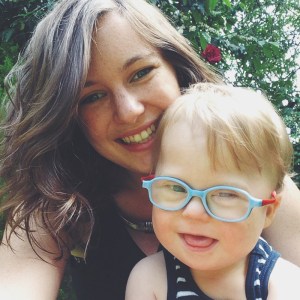
Often, the things in life that weren’t part of the original plan are better than the planned life could have ever been. I’ve found this with our little boy – he is not what we expected or planned for. But he has made our lives more full and rich than they ever would have been if our lives had gone as we had originally planned. Heather Avis, blogger at The Lucky Few, poster behind the famous Instagram account @macymakesmyday (which you NEED to be following if you’re not already. Highlight of my day) and mother to three adopted children (two of which have Down Syndrome) puts it perfectly when talking about her oldest daughter: ‘I know now it was not the Down syndrome, or the heart defect, or the serious lung disease that terrified me, it was the unknown and the unplanned for those things represented. I thought I knew what my life should look like in order for it to be the best it could, and this was not it…or so I foolishly believed. Then [my daughter] rammed into me, shattering my plans and in so doing, revealing just how narrow and shallow they were. I was hoping for a pond. She brought me the ocean.’
When it comes to things like having medical intervention or drugs in labour when you wanted a natural birth; having issues feeding and having to give formula or expressed milk when you wanted to breastfeed; or even feeling disappointment over your child not being the baby you had imagined or expected they would be, this can often come with an overwhelming load of guilt and self-blame. This does not make you a bad parent. You have not failed.
Again, it’s all about perspective – what is important is the fact that you carried a baby for nine months, grew them inside of you and birthed and are raising a beautiful, unique child. That is a gigantic feat and accomplishment in itself and one worth being proud of.
It is important to not dismiss the feelings and emotions that come from things not going to plan and to deal with the issues that may arise from them by talking them through and getting help if needed. But it is also important to not dwell on the disappointment more than necessary. It’s not easy. I have found that finding perspective can often be a daily task of making myself intentionally focus on the good and, by doing so, letting the negative fade into insignificance. I’ve found that when you focus on what you have achieved and the good that’s come out of it, finding that different perspective, your life view changes to one more positive and able to withstand the unexpected things that don’t go to plan. Your perspective defines your life view; and your focus defines your perspective. Finding that different perspective is what can make all the difference.
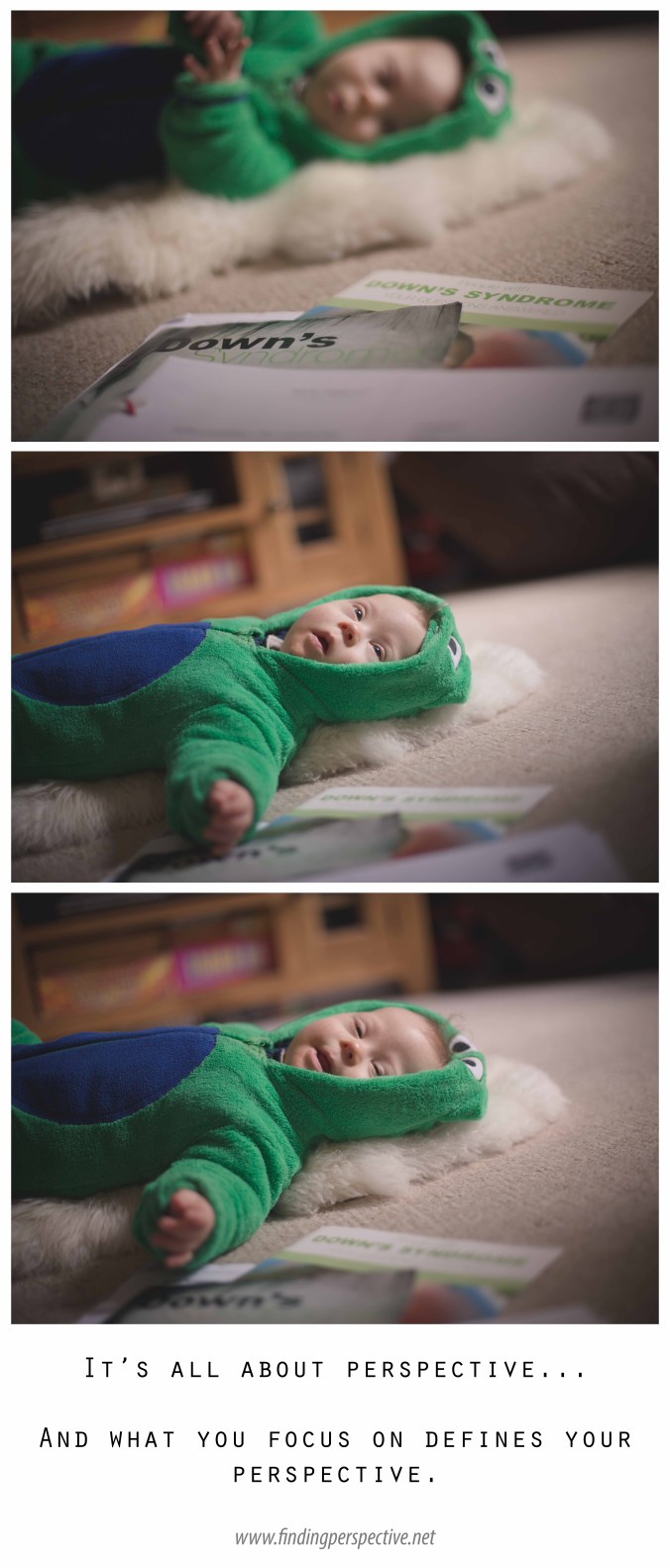 A few highlights from 2015:
A few highlights from 2015:

Processed with VSCOcam with f2 preset

Processed with VSCOcam with x1 preset

Processed with VSCOcam with f2 preset

Processed with VSCOcam with c1 preset

Processed with VSCOcam with se1 preset

Processed with VSCOcam with t1 preset

Processed with VSCOcam with f2 preset

Processed with VSCOcam with x1 preset

Processed with VSCOcam with se3 preset
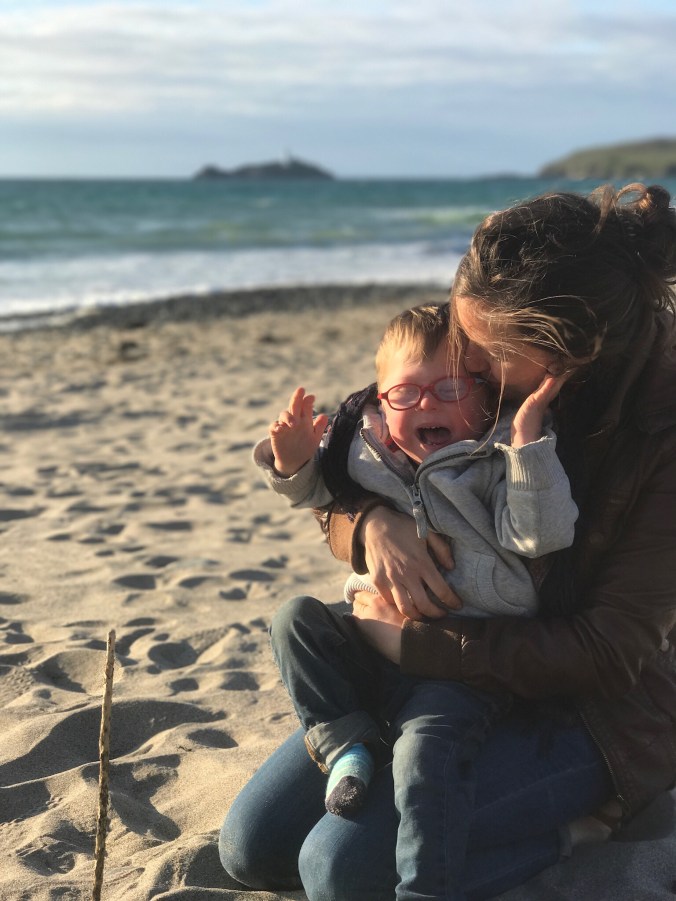
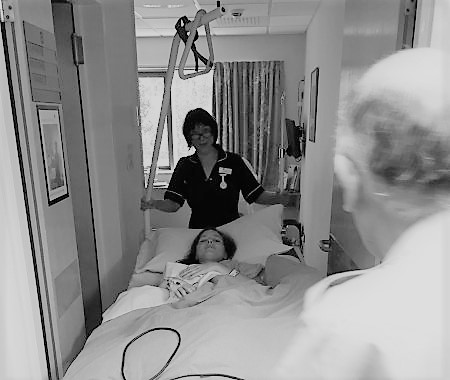


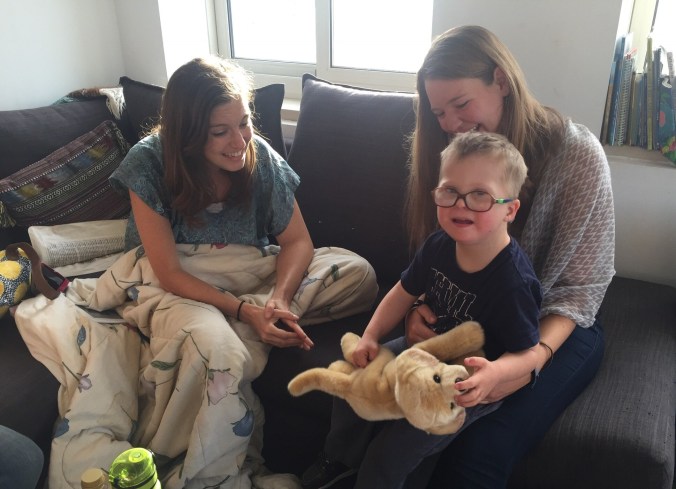
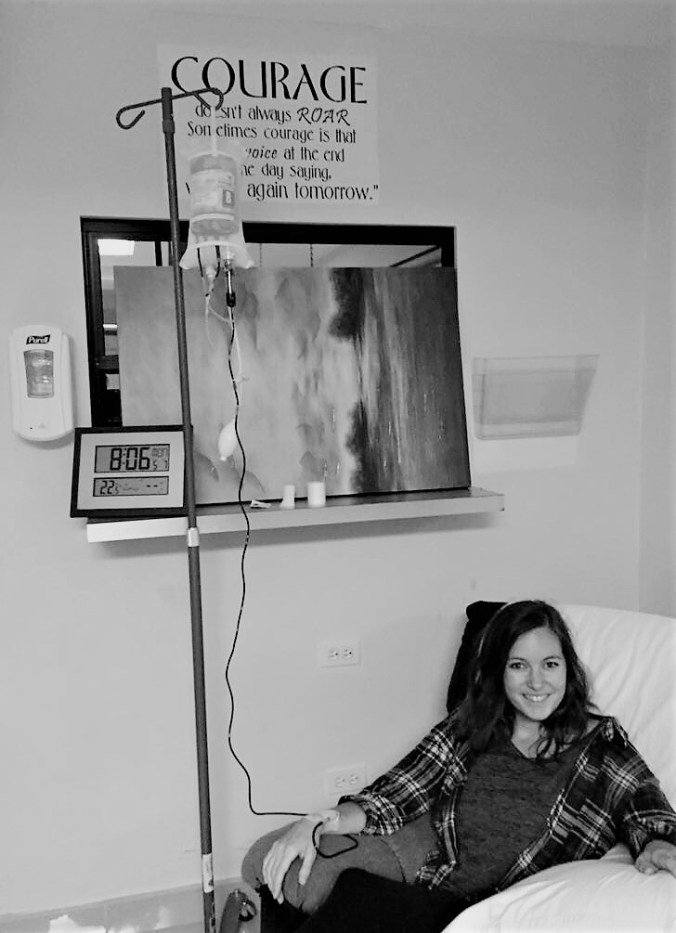
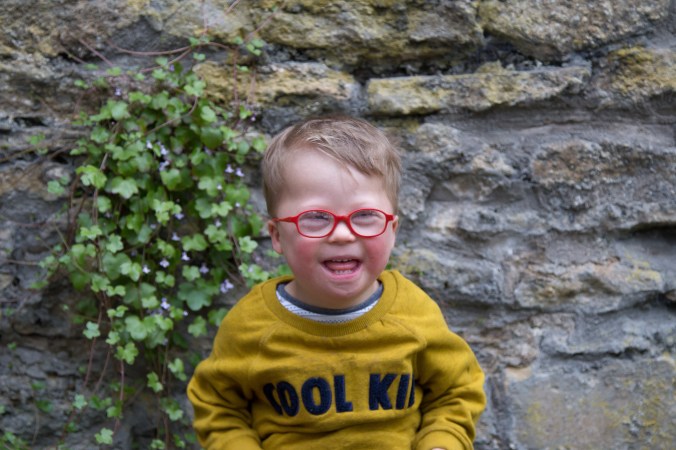


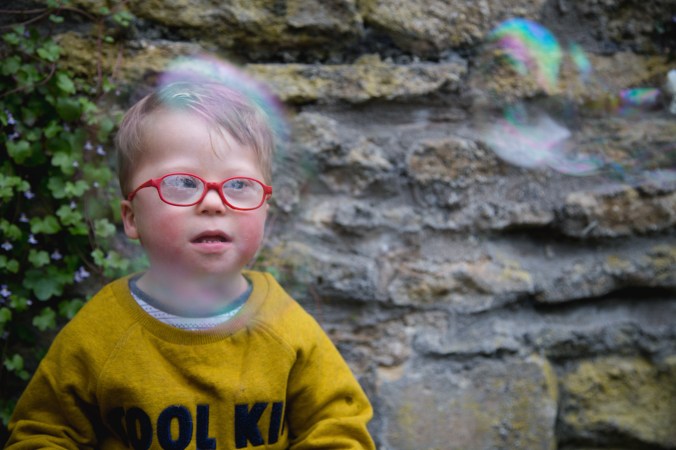
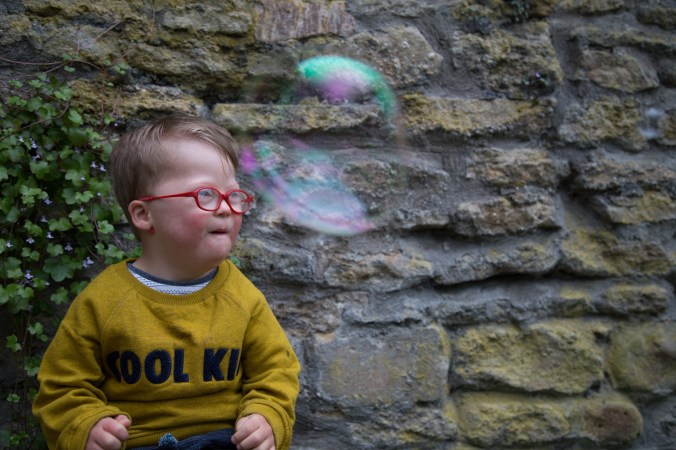
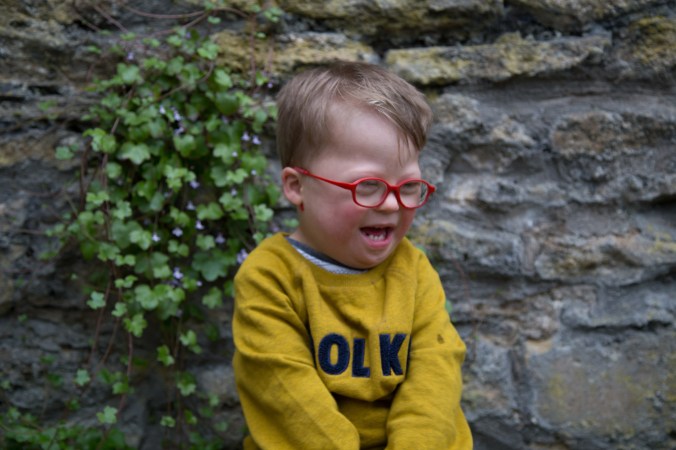


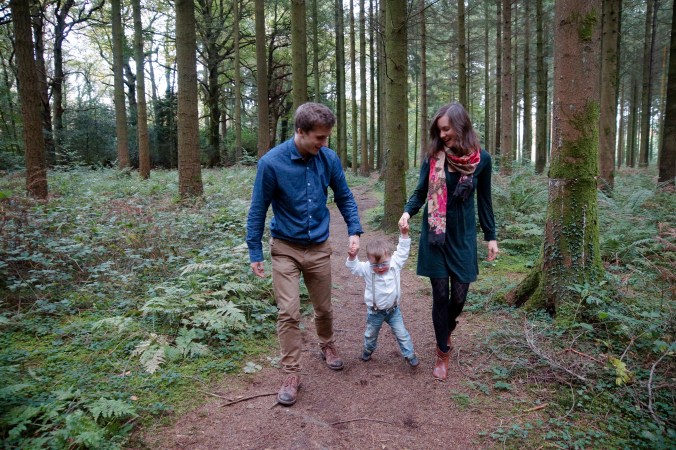
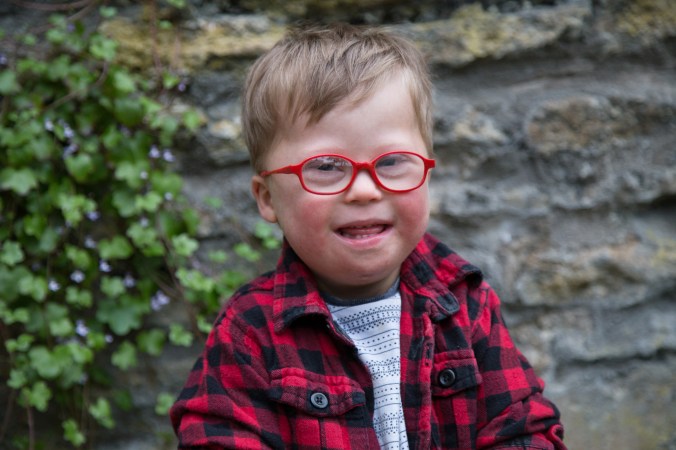



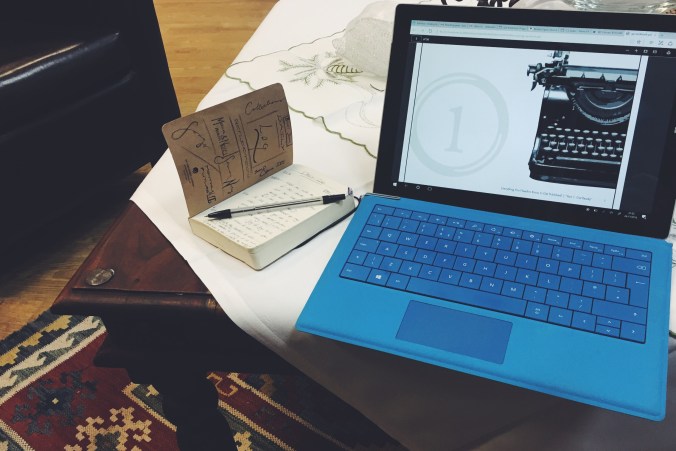

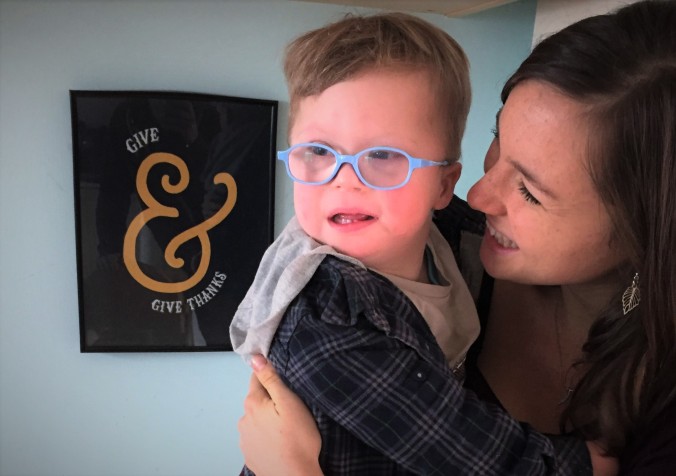
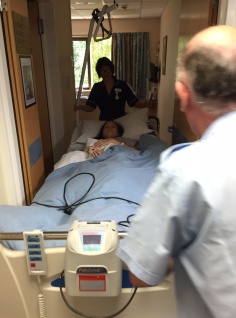 of going through two separate surgeries, intense nutritional therapy, a complete overhaul of diet and lifestyle and physical, emotional and spiritual detoxing. Thank God.
of going through two separate surgeries, intense nutritional therapy, a complete overhaul of diet and lifestyle and physical, emotional and spiritual detoxing. Thank God.
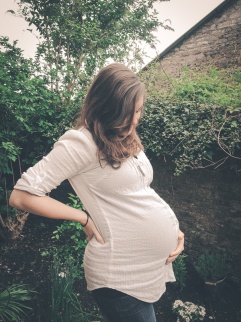 pregnant with our first child at 24, only to find out at the 20 week scan that our child would most likely have severe brain damage and possible problems with his heart. Our baby making a miraculous recovery and
pregnant with our first child at 24, only to find out at the 20 week scan that our child would most likely have severe brain damage and possible problems with his heart. Our baby making a miraculous recovery and 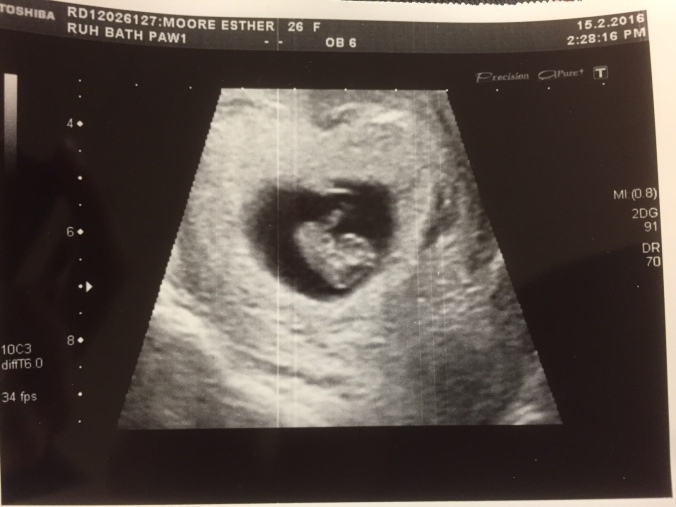

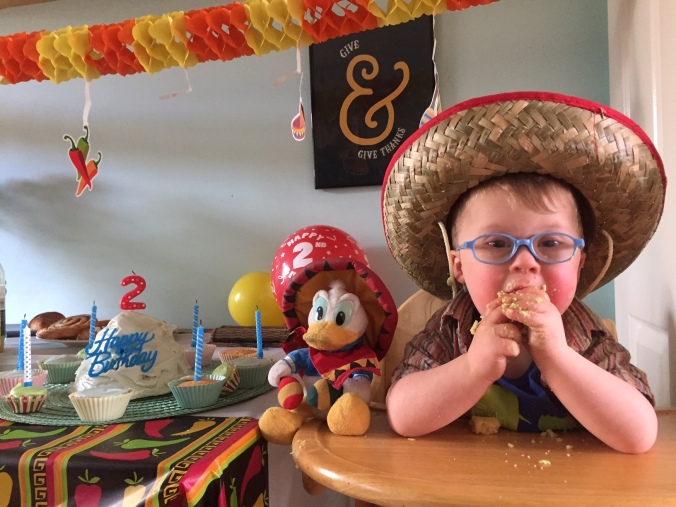

 understatement! With ten meter high inflatable Santas on every corner, every house competing to see who could have the most glitzy Christmas lights and decorations covering every inch of outside space, and advertisers constantly trying to overwhelm the public with how much they need the latest and best things for Christmas, it would leave me…confused. How did the holiday that’s meant to be celebrating the immense joy of Light entering the world and shattering our darkness become so…plastic?
understatement! With ten meter high inflatable Santas on every corner, every house competing to see who could have the most glitzy Christmas lights and decorations covering every inch of outside space, and advertisers constantly trying to overwhelm the public with how much they need the latest and best things for Christmas, it would leave me…confused. How did the holiday that’s meant to be celebrating the immense joy of Light entering the world and shattering our darkness become so…plastic? course down to personal taste), mulled wine, Christmas markets and buskers singing carols and festive atmosphere filling the streets, I turned into a kid again. I started reliving my childhood and now have 3 different
course down to personal taste), mulled wine, Christmas markets and buskers singing carols and festive atmosphere filling the streets, I turned into a kid again. I started reliving my childhood and now have 3 different  marriage and got pregnant within the first week of trying. The first few appointments and the 12 week scan went perfectly well; I was classed as a low-risk pregnancy and was told I could have my birth at a natural birthing centre as I wanted. We went on blissfully until our 20 week scan, when – suddenly – our perfect world was shattered around us. Sitting in the antenatal scanning room, I still remember the feeling of ice-cold numbness and the sensation of falling when they told us there was a problem with our baby. They had detected extra fluid on his brain and what looked like a problem with his heart. They told us to come back in two weeks for another scan by a heart specialist and to meet with a consultant about what this would mean for our baby.
marriage and got pregnant within the first week of trying. The first few appointments and the 12 week scan went perfectly well; I was classed as a low-risk pregnancy and was told I could have my birth at a natural birthing centre as I wanted. We went on blissfully until our 20 week scan, when – suddenly – our perfect world was shattered around us. Sitting in the antenatal scanning room, I still remember the feeling of ice-cold numbness and the sensation of falling when they told us there was a problem with our baby. They had detected extra fluid on his brain and what looked like a problem with his heart. They told us to come back in two weeks for another scan by a heart specialist and to meet with a consultant about what this would mean for our baby. , we would most likely need to stay in the hospital for a good few weeks with our baby in the intensive care unit. Everything he said – everything – was the exact opposite of what I had always imagined and planned for my first birth and baby.
, we would most likely need to stay in the hospital for a good few weeks with our baby in the intensive care unit. Everything he said – everything – was the exact opposite of what I had always imagined and planned for my first birth and baby. pportive family and/or a good group of friends that you can confide in and talk honestly with helps enormously. I am so thankful for the support of both of our families and their love for our son, which helped us so much in the difficult early days and continues to make a huge difference for us. We also have had support from local charities such as
pportive family and/or a good group of friends that you can confide in and talk honestly with helps enormously. I am so thankful for the support of both of our families and their love for our son, which helped us so much in the difficult early days and continues to make a huge difference for us. We also have had support from local charities such as  h teething! Sometimes it helps just knowing others have gone through or are going through similar things.
h teething! Sometimes it helps just knowing others have gone through or are going through similar things. That rush of relief is unlike anything I had ever felt before or felt since. It was that sound that made me realise that everything that it had taken to get him here was worth it.
That rush of relief is unlike anything I had ever felt before or felt since. It was that sound that made me realise that everything that it had taken to get him here was worth it. baby would bring us more life and joy than anything else we had ever experienced. That instead of being imprisoned by parenting a child with special needs, it would be the most liberating time of our lives – freeing us from the shackles of stigmas and stereotypes that society puts on anyone slightly different to the norm. And that instead of our dim misperception of imagining raising a child that would have limited intelligence, character and personality, our child would be razor sharp (too clever for his own good sometimes), be full of life and joy and would have his own very unique, cheeky personality that would know every trick in the book of getting attention and laughs from everyone he meets.
baby would bring us more life and joy than anything else we had ever experienced. That instead of being imprisoned by parenting a child with special needs, it would be the most liberating time of our lives – freeing us from the shackles of stigmas and stereotypes that society puts on anyone slightly different to the norm. And that instead of our dim misperception of imagining raising a child that would have limited intelligence, character and personality, our child would be razor sharp (too clever for his own good sometimes), be full of life and joy and would have his own very unique, cheeky personality that would know every trick in the book of getting attention and laughs from everyone he meets.
 A few highlights from 2015:
A few highlights from 2015:



































 that people come from all over the country for (including celebrities – my first one I was working at I accidentally got a photo of Russell Brand doing some casual shopping!) and Will retraining in the finance department of the company he was working before at as a management consultant. His new job means more normal hours, no more 70 hour work weeks and much more time to spend with the family at home. I never see Caleb more excited now than when Will walks through the door when he gets home from work. They’ve become best buds and Caleb is definitely a daddy’s boy now. Will now has time to take Caleb to the park a few mornings a week before work and spend an hour playing with Caleb when he gets home. He also now does bath time, story time
that people come from all over the country for (including celebrities – my first one I was working at I accidentally got a photo of Russell Brand doing some casual shopping!) and Will retraining in the finance department of the company he was working before at as a management consultant. His new job means more normal hours, no more 70 hour work weeks and much more time to spend with the family at home. I never see Caleb more excited now than when Will walks through the door when he gets home from work. They’ve become best buds and Caleb is definitely a daddy’s boy now. Will now has time to take Caleb to the park a few mornings a week before work and spend an hour playing with Caleb when he gets home. He also now does bath time, story time and bed time and their bond has grown so much stronger because of it.
and bed time and their bond has grown so much stronger because of it. cousins, ranging from 12 years old to a few weeks younger than Caleb. My respect for my sister shot through the roof during this time, seeing how she lives every day looking after 8 children – all with big, outgoing personalities and constantly full of energy! Despite all this, we had an amazing time together. A week later when my niece had been discharged, nurses came to check on her burns and were amazed at how quickly her burns were healing – they said that they were healing twice as fast as they would have expected and she was soon back to herself.
cousins, ranging from 12 years old to a few weeks younger than Caleb. My respect for my sister shot through the roof during this time, seeing how she lives every day looking after 8 children – all with big, outgoing personalities and constantly full of energy! Despite all this, we had an amazing time together. A week later when my niece had been discharged, nurses came to check on her burns and were amazed at how quickly her burns were healing – they said that they were healing twice as fast as they would have expected and she was soon back to herself. We then all went camping at a worship festival called David’s Tent and had the most incredible, restful much-needed time being together as family along with our closest friends. After another week spent with them partly in Devon and partly in our new house when we had a beautiful time being able to relax and enjoy being together, they flew out – and m
We then all went camping at a worship festival called David’s Tent and had the most incredible, restful much-needed time being together as family along with our closest friends. After another week spent with them partly in Devon and partly in our new house when we had a beautiful time being able to relax and enjoy being together, they flew out – and m y parents arrived the next day! They stayed for a week and we had a great time together, but it was non-stop for a long, long time.
y parents arrived the next day! They stayed for a week and we had a great time together, but it was non-stop for a long, long time. entire body getting involved. Times when he seems to instinctively know who is having a bad day or is feeling down and impulsively launches himself into their arms, hugging them tightly and changing their mood and atmosphere of the room with his gorgeous smile and infectious laugh. He seems to have a gift for wholeheartedly loving people who need it most and unreservedly giving his affection to whoever he meets. And – he crawled for the first time yesterday, on his 18 month birthday! Reaching milestones seem all the sweeter when you’ve been fighting for them as long as he has. We couldn’t be more proud of him.
entire body getting involved. Times when he seems to instinctively know who is having a bad day or is feeling down and impulsively launches himself into their arms, hugging them tightly and changing their mood and atmosphere of the room with his gorgeous smile and infectious laugh. He seems to have a gift for wholeheartedly loving people who need it most and unreservedly giving his affection to whoever he meets. And – he crawled for the first time yesterday, on his 18 month birthday! Reaching milestones seem all the sweeter when you’ve been fighting for them as long as he has. We couldn’t be more proud of him. down. It’s funny how the unplanned for and unexpected can so often be so much better than our original plans for our lives are. I’ve found this with our boy – he is not what we expected or planned for. But he has made our lives more full and rich than they ever would have been if our lives had gone as we had originally planned.
down. It’s funny how the unplanned for and unexpected can so often be so much better than our original plans for our lives are. I’ve found this with our boy – he is not what we expected or planned for. But he has made our lives more full and rich than they ever would have been if our lives had gone as we had originally planned.


















 It is a tidal wave of love that is overwhelming in the power of its strength. It is an instinct of being willing to go to any lengths to protect your child from harm, a warrior instinct that is almost frightening in its ferocity – even before they are born. It is a joy that makes your heart feel full to bursting every time you hold them and look into their smiling, fully trusting eyes that reflect a small piece of who you are. It is everything we were made for and, in my experience, one of the best, most fulfilling things you can ever do with your life.
It is a tidal wave of love that is overwhelming in the power of its strength. It is an instinct of being willing to go to any lengths to protect your child from harm, a warrior instinct that is almost frightening in its ferocity – even before they are born. It is a joy that makes your heart feel full to bursting every time you hold them and look into their smiling, fully trusting eyes that reflect a small piece of who you are. It is everything we were made for and, in my experience, one of the best, most fulfilling things you can ever do with your life.

